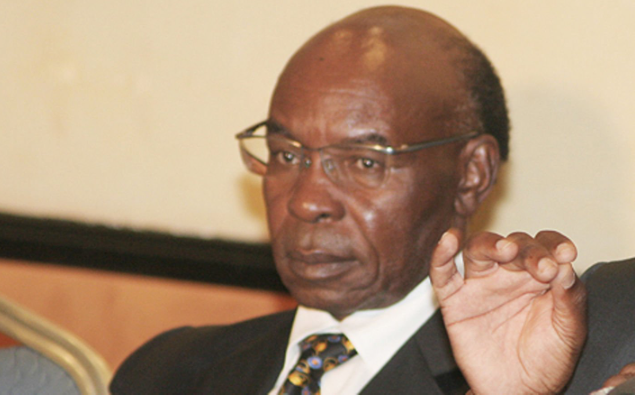Media mogul SK Macharia made a seemingly routine financial request, as he wrote to Diamond Trust Bank (DTB), instructing them to wire Sh400 million from Directline Assurance Company Ltd to a housing firm he owns.
However, this transaction would unexpectedly reignite a long-standing dispute with the insurance regulator, bringing a five-year-old fight back into the spotlight.
SK Macharia, known for his significant influence in the media and business sectors, likely anticipated a straightforward transfer.
However, the substantial movement of funds from Directline Assurance, an insurance company, to a housing firm owned by Macharia, caught the attention of the Insurance Regulatory Authority (IRA).
The IRA, tasked with overseeing and ensuring the stability and compliance of insurance companies, viewed the transaction with suspicion.
The heart of the issue lies in the regulations governing the use of insurance company funds. Insurance companies are required to maintain certain liquidity and solvency levels to ensure they can meet their policyholder obligations.
Large financial transactions, particularly those not directly related to insurance operations, can raise red flags for regulators concerned about the financial health and regulatory compliance of these firms.
Macharia’s Sh400 million transfer triggered these regulatory alarms, leading the IRA to scrutinize the transaction and the financial practices of Directline Assurance more closely.
The regulator’s concerns are rooted in ensuring that policyholder funds are not jeopardized by potentially risky or non-transparent financial maneuvers.
This development is not the first clash between Macharia and the insurance regulator.
The rekindling of their five-year-old dispute suggests a history of regulatory tension and differing interpretations of financial compliance and business operations.
The specifics of their past conflicts remain shrouded in confidentiality, but the re-emergence of these issues highlights the ongoing challenges and scrutiny faced by business magnates operating in highly regulated sectors.
For Macharia, this renewed regulatory scrutiny could have significant implications.
Beyond the immediate financial transaction, the dispute may affect the operations and reputation of both Directline Assurance and his broader business interests.
Regulatory investigations often lead to increased oversight, potential penalties, and, in severe cases, legal challenges that can disrupt business operations.
The broader business community and stakeholders in the insurance sector will be closely monitoring the developments in this case.
The outcome could set precedents for how similar transactions are viewed and regulated in the future, influencing the operational latitude of insurance companies and their ability to engage in large-scale financial activities.
For the IRA, this situation underscores the importance of vigilant regulatory oversight in maintaining the integrity and stability of the insurance sector.
Ensuring compliance and safeguarding policyholder funds are paramount responsibilities that require decisive action when potential violations are identified.
As the dispute unfolds, the legal and financial maneuvers by both parties will likely draw significant public and media attention.
The intersection of high finance, regulatory oversight, and corporate governance provides a compelling narrative with far-reaching implications for the business and regulatory landscape in Kenya.
SK Macharia’s attempt to transfer Sh400 million from Directline Assurance to his housing firm has unexpectedly revived a dormant regulatory battle.
The IRA’s scrutiny highlights the delicate balance between business operations and regulatory compliance, a dynamic that will continue to shape the fortunes of those involved.
As the case progresses, the broader impacts on the insurance sector and regulatory practices in Kenya will become clearer, offering important lessons for businesses and regulators alike.





















Add Comment